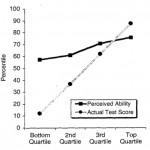Learning from Saddam
Posted on November 7, 2006 by Robert Ringer
I’ve always thought I’d be a much smarter tyrant than Saddam Hussein. Now I’m sure of it. When I watched him sitting in court, waiting to be sentenced to death, I have to admit I was thinking, “I told you so.”
Ever since the U.S. invaded Iraq to save the Kuwaitis, pundits have labeled Saddam “the master of miscalculation.” Watching him in his present circumstances, however, I feel it would be more appropriate to refer to him as the master of The Big Mistake.
To quote myself from a previous article: “Some Big Mistakes are made impulsively, on the spur of the moment, while others are made after considerable reflection. In the latter case, the problem usually is that the person allows his intellect to get trampled by his emotions.”
In reflecting on Saddam’s error in judgment, I realize now that I should have said “… the problem usually is that the person allows his intellect to get trampled by his emotions and/or ego.” In thinking about Saddam’s free-fall from a large collection of sumptuous palaces to a small prison cell and a death sentence, I’m still dumbfounded by the magnitude of his mistake.
Just as he had done in 1990, Saddam gambled that the U.S. wouldn’t cross the Atlantic and kick butt. He probably assumed that Cowboy George was as weak-kneed as his dad, who let Saddam off the hook at a time when the U.S. military easily could have finished the job.
Saddam’s is the ultimate Big Mistake. All he needed to do was let the U.N. inspectors flit around Iraq and pretend they were looking for WMDs, and the civilized world would have let him continue to plunder and torture his people at will. Even if he had WMDs at the time, he could have simply let the powers that be destroy them — or ship them to Syria, which is quite possibly what he ended up doing anyway.
By contrast, Muammar Qaddafi apparently remembered the lessons of history (a Reagan missile zooming over his dining room table in 1986) and factored those lessons into his decision-making process. Qaddafi is purported to have asked a high-ranking State Department official if he would meet the same fate as Saddam if Libya terminated its nuclear program.
The official assured him that if Libya went the no-nuke route, the U.S. wouldn’t bother him. Apparently pleased to hear this, he decided to become a role model for Libyan Boy Scouts. In other words, at the moment of truth, Qaddafi’s intellect overrode his emotions and ego. Which, in turn, led to his not making The Big Mistake.
As a reminder to yourself of the importance of avoiding The Big Mistake, you need only pay close attention to the daily news. It’s amazing how many stories are a direct result of The Big Mistake — John Kerry (every other day) … Steve Wynn (accidentally punching a hole through a $139 million Picasso with his elbow) … Barry Bonds (tears, tears, and more tears) … Steve Irwin (“The Crocodile Hunter”) … and so on.
Unfortunately, there is no foolproof way to avoid making The Big Mistake, but a method that I find works very well is what I refer to as “looking backward from the future.” Here’s how it works:
- Project yourself into the future before you act.
- Picture the worst possible consequences of your actions.
- Pretend to look over your shoulder from the future — at where you are today.
- If No. 2 looks much worse than what you see in No. 3, you would be wise to rethink your plans. Put another way, if you’re not prepared to live with the worst-possible consequences of your contemplated action, take a pass.
I don’t mean to imply that you shouldn’t take risks. Risk is an integral part of success. But so is moderation, which is why you should always add it to the risk equation. Reasonable risk is a necessity for getting ahead in life; unreasonable risk is foolish.
By employing the looking-backward-from-the-future method, I’ve been able to avoid the “excitement” of engaging in such dubious activities as jumping out of airplanes and bungee jumping. Given that I don’t have wings, I don’t like the downside of those kinds of activities.
When the worst possible consequence of your contemplated action is death, you’re in danger of making The Big Mistake. And that includes when the consequence could be financial death.










